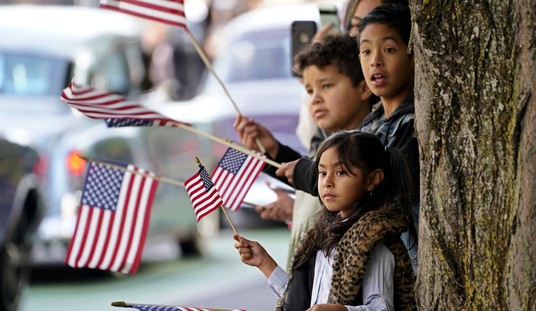Democrats looking to hold onto the Senate got bad news from an unusual source this morning. A new Politico poll shows Republicans holding a significant lead in generic Congressional balloting, 41/34, and 43/36 specific to the Senate races. Barack Obama’s approval numbers show him nearly 20 points underwater at 40/59, perhaps his worst ever showing in any major national poll:
President Barack Obama’s job approval slump and voters’ entrenched wariness of his health care law are dogging Democrats ahead of the 2014 midterm elections, and Republicans have captured a lead in the areas home to the year’s most competitive races, according to a new POLITICO poll.
In the congressional districts and states where the 2014 elections will actually be decided, likely voters said they would prefer to vote for a Republican over a Democrat by 7 points, 41 percent to 34 percent. A quarter of voters said they were unsure of their preference.
Among these critical voters, Obama’s job approval is a perilous 40 percent, and nearly half say they favor outright repeal of the Affordable Care Act. Sixty percent say they believe the debate over the law is not over, compared with 39 percent who echo the president’s position and say the ACA debate has effectively concluded.
Both Obama’s job approval and the partisan ballot matchup are markedly more negative for Democrats in this poll than other national surveys — a reflection of the political reality that the midterm campaign is being fought on turf that is more challenging for Democrats than the nation as a whole.
Sounds like wonderful news for Republicans — so what’s the catch? In this poll of likely voters in the midterms, the net partisan split is 34% Democrats … and 39% Republicans (26% independents, 1% decline to answer). That’s an unusual D/R/I, even if one is inclined to believe that Republicans are much more likely to turn out in big numbers than Democrats. This poll was conducted in “the states and districts with the most competitive Senate and House races, as ranked by the University of Virginia Center for Politics,” so these states may lean more Republican as a matter of course, too.
Now, if this accurately represents the turnout model for the midterms, then Democrats are stumbling toward a huge backlash the likes of which may make 2010 look like an autumn frolic. But the turnout model in 2010 was 35/35/29, albeit in a race that had a more even distribution of Senate races in red, blue, and purple states than the midterms this year will be. Still, that’s the closest model we have for this coming midterm, so these approval numbers and generic Congressional gaps may not be quite as pronounced as this one poll shows.
There are a couple of other anomalies from the national-poll picture. First, there is a net 48/52 opposition to same-sex marriage, where most polls over the last couple of years show low-majority support. Perhaps more significantly, nearly a majority of respondents (48%) support full ObamaCare repeal over modifying it (35%), which is a reversal of trends in other polls. In part, that may be because 12% of those with a positive experience with the federal government chalked it up to ObamaCare, but 28% of those who had negative experiences with the federal government cited health care as the reason — twice as high as taxes, and just after the tax season.
On the other hand, there are a couple of warning signals for Republicans and conservatives, too. Comprehensive immigration reform gets a massive 71/29 approval rating in these states, 79% support expanded background checks for gun purchases, and 74% support government action to deal with gender inequality in income. On the other hand, a push for marijuana legalization would meet with 56% opposition.
Even if one takes this with a small grain of salt based on the composition of the sample, it’s bad news almost all the way around for Democrats. They may be able to message on those issues in which they have substantial agreement, but all of those issues are single-digit concerns, even when allowing for multiple responses. The economy and jobs are by far the highest concerns of likely voters in these races, followed by health care. Immigration (3%) and pay equity (2%) barely show up on the radar screen at all. Democrats appear to be rolling into disaster, and the only real debate is its scope.









Join the conversation as a VIP Member